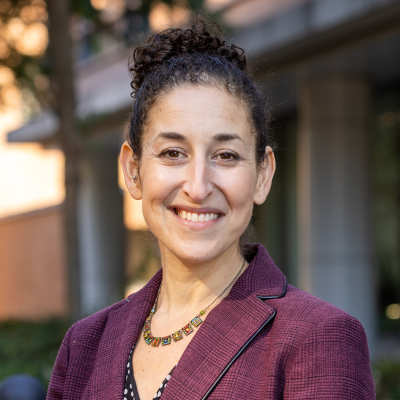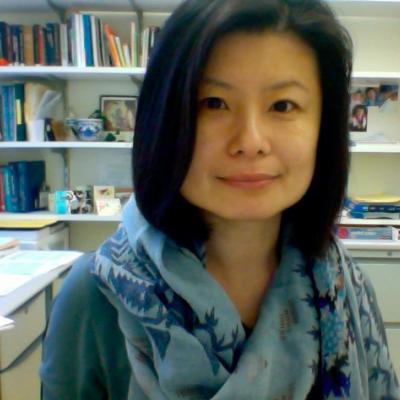Learn more about the search committee for Editor of Child Development.

W. Quin Yow, Chair
Professor W. Quin Yow serves as the Co-Chair of the SRCD Publications Committee. She is currently the Head of Humanities, Arts & Social Science at the Singapore University of Technology and Design, and a visiting Senior Academician at the Changi General Hospital. She obtained her Ph.D. (Psychology), M.A. (Psychology) and M.Sc. (Statistics) from Stanford University, USA. Her main area of research is examining socio-cognitive development across the lifespan, including how factors such as the language environment that we grow up in influence our cognitive functioning, and how technology influences the way we communicate and interact with each other. Professor Yow has published consistently in top-tiered peer-reviewed journals and conferences such as Child Development, Developmental Science, Journal of Experimental Child Psychology, Journal of Gerontology Series B, Bilingualism: Language & Cognition, Innovation in Aging, Frontiers in Psychology, Cognitive Development, Society of Research in Child Development (SRCD), Cognitive Development Society, Cognitive Science Society, etc., in the area of social cognition, bilingualism, technology and aging. She currently serves in the Editorial Board for Cognitive Development and Frontiers in Psychology, Consulting Editor for Child Development, and Associate Editor for Bilingualism: Language & Cognition as well as Innovation in Aging.

Aprile Benner
Aprile Benner is a Professor in the Department of Human Development and Family Sciences, Population Research Center at the University of Texas at Austin and holds a Ph.D. from the University of California, Los Angeles. Aprile Benner’s substantive research interests center on the development of low-income and racially/ethnically minoritized youth, investigating how social contexts influence experiences of marginalization and discrimination, school transitions, and developmental outcomes during adolescence. As a developmental psychologist, the core of her research program is a fundamental developmental question—what are the continuities and changes in the social, emotional, and cognitive growth and maturation of young people? Reflecting her training in educational demography, she works to answer this question with an awareness of how such developmental patterns are embedded in the groups, contexts, and social structures of society.

Ty Boyer
Ty W. Boyer, Ph.D., is a Professor and Department Chair in the Georgia Southern University Department of Psychology. Dr. Boyer earned a B.S. in Psychology from Arizona State University and an M.A. and Ph.D. in Developmental Psychology from the University of Maryland, spent time as a Postdoctoral Fellow in the University of Chicago Department of Psychology and as a Research Associate in the Indiana University Department of Psychological & Brain Sciences, and was an Associate Editor for Child Development during his time at Georgia Southern University. Dr. Boyer is interested in cognitive and perceptual development. His research asks, how do people gather information from their surrounding contexts, what roles do others’ presence and actions play in this process, how is what we perceive compared and contrasted with preexisting representations, how do these processes interact to form expectations that guide actions, and what aspects of these processes might be attributable to inherent biases that emerge very early in life versus learning and development that require more prolonged experience? He has conducted studies on the development of action perception and understanding, numerical and probabilistic reasoning, and decision-making processes and risk-taking tendencies, with a broad developmental perspective that spans from infancy to adulthood, which have been published in some of the leading professional journals in his research area. Dr. Boyer's teaching interests are primarily in research methods and analyses, child developmental psychology, and cognition. When away from campus he enjoys spending time with family, cooking and eating (especially barbecue), attending rock concerts, sporting events, and comedy shows, and pushing his limits by training for and competing in grueling obstacle course races.

Michael Cunningham
Michael Cunningham holds the academic rank of Professor at Tulane University; and he has a joint faculty appointment in the Department of Psychology and the undergraduate program in Africana Studies. He is a developmental psychologist with a program of research that focuses on racial, ethnic, psychosocial, and socioeconomic processes that affect psychological well‐being, adjustment to chronic stressful events, and academic achievement among African American adolescents and their families. He also serves as Associate Provost for Graduate Studies and Research in Tulane University’s Office of Academic Affairs. Dr. Cunningham has received Tulane’s highest teaching award and been designated as a Suzanne and Stephen Weiss Presidential Fellow. He completed his doctoral work at Emory University after completing an undergraduate degree at Morehouse College. Dr. Cunningham also completed a postdoctoral fellowship at the University of Pennsylvania. His journal editorial experience includes Editor-in-Chief of Research in Human Development (1/ 2017 - 12/2023), co-editor for American Educational Research Journal (7/2019 – 7/2022), and Associate Editor for Child Development (7/2007 – 12/2019). He currently serves on editorial board for the Journal of Negro Education and have been on the editorial boards of Developmental Psychology, Psychological Methods, and Research in Human Development.

Eva Pomerantz
Eva M. Pomerantz is a faculty member in the Department of Psychology at the University of Illinois Urbana Champaign (UIUC). Dr. Pomerantz’s research focuses on how parents can facilitate children’s motivation and learning in school. In addition to studying families in the United States, she also studies families in China to understand how culture shapes children’s motivation and learning. Dr. Pomerantz currently serves as the director of the Center for Social and Behavioral Science at UIUC where her major goal is to bring together researchers from diverse disciplines to use social and behavior science to address major societal challenges.

Eleanor Seaton
Dr. Eleanor K. Seaton is a Professor at the University of Illinois at Urbana-Champaign. Dr. Seaton is a developmental psychologist, and an international expert on racism-related experiences, racial identity, and mental health among Black youth. Using a range of methodologies, including prospective cohort studies, daily diary assessment, qualitative interviews, and analyses of nationally representative data sets, Dr. Seaton’s research documents the toll racism exerts on Black adolescents’ mental health, and the contexts that shape how racism manifests in Black youths’ lives. Dr. Seaton has increasingly focused on early adolescence in order to understand the intersection of pubertal development, race-ethnicity and gender among Black youth. Dr. Seaton’s ultimate goal is to uncover how racism-related experiences result in various societal disparities (e.g., health, educational, criminal justice, wealth) among the Black population. Dr. Seaton initiated a project examining the impact of Chicago style house music among Black Generation X adults. Dr. Seaton is a former co-host of a television segment, titled Break it Down on AZ PBS where she discussed how racism impacts various facets of society. Dr. Seaton tends to journal, travel, bake desserts, shop, read, watch movies and dance to Chicago style house music when relaxing.

Eva Telzer
Eva Telzer is a Professor of Psychology and Neuroscience at UNC Chapel Hill. She is an Associate Editor at Child Development and Social Cognitive Affective Neuroscience, and the co-director of the Winston National Center on Technology Use, Brain and Psychological Development. Her research examines how social and cultural processes shape adolescent brain development, with a focus on both prosocial and risk-taking behaviors, family and peer relationships, and the role of social media in youth’s lives. She has authored over 200 publications and has received numerous awards for her work including an Association for Psychological Science Rising Star Award, an early career award from the Society of Research on Adolescence, a Young Investigator Award from the Flux Congress Society for Developmental Cognitive Neuroscience, and the American Psychological Association Distinguished Scientific Award for Early Career Contribution to Psychology. She is regularly featured as an expert in psychological science in consultation to government agencies and non-profit associations as well as media appearances in The New York Times, NPR, CNN, ABC, CBS, and NBC.

Haley Vlach
Dr. Haley Vlach is a faculty member in the Department of Educational Psychology at the University of Wisconsin, Madison and Director of the Learning, Cognition, & Development Lab. Her research examines the mechanisms underlying children’s learning to (a) understand cognition and how cognition develops, and (b) build an empirical base for the design of successful learning interventions and educational curricula. Her research has been funded by NIH, NSF, WARF, WCER, and the Australian Research Council. Dr. Vlach has received several awards for her work, recognizing her as an early pioneer in the fields of cognitive science and developmental psychology. For instance, she has received the SRCD Early Career Contribution Award, APA Boyd McCandless Award, William Chase Award, and James S. McDonnell Foundation Human Cognition Scholar Award. She holds doctorate and master’s degrees in psychology from the University of California, Los Angeles, and a bachelor’s degree in psychology from Carnegie Mellon University.

Su-hua Wang
Su-hua Wang was a first-gen student, who moved from Taiwan to the U.S. for graduate study and received her Ph.D. from the University of Illinois at Urbana-Champaign. Her doctoral research involved experimental work on infant cognition and ethnographic work on family storytelling with toddlers. She is a Professor of Psychology at the University of California, Santa Cruz. Her current research examines how early learning is shaped, in diverse ways, by children’s participation in cultural practices and their interaction with caregivers and cultural materials such as toys, books, and technology. She is the co-founder and director of UCSC’s New Gen Learning, an interdisciplinary research consortium for studying the strengths that children from racially and/or linguistically marginalized backgrounds bring to learning. Her work has been funded by NIH, NSF, and the Spencer Foundation.